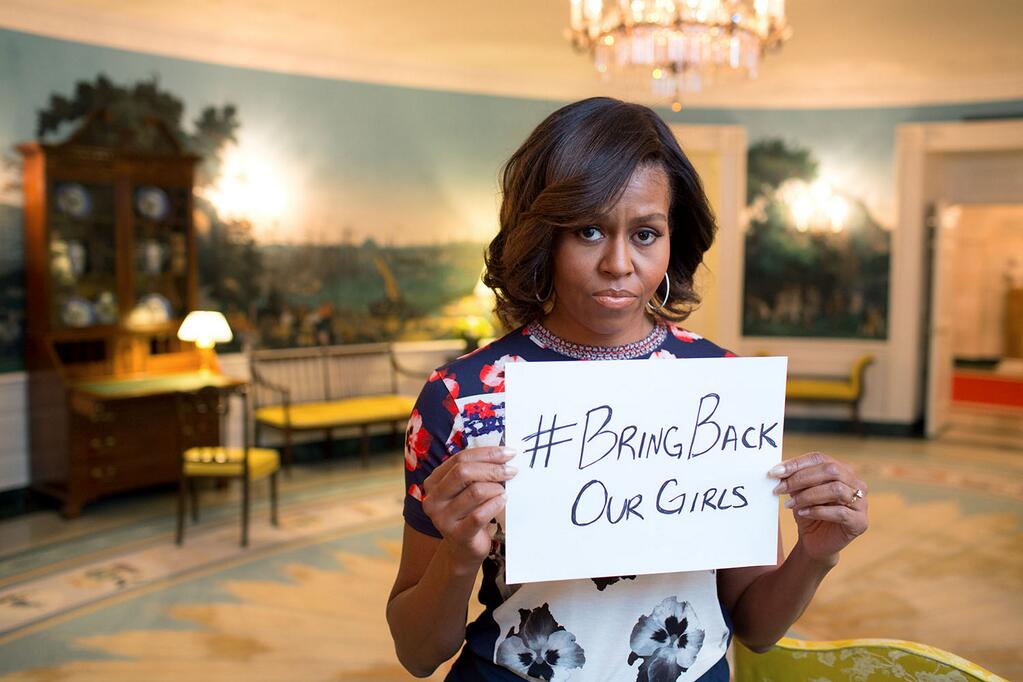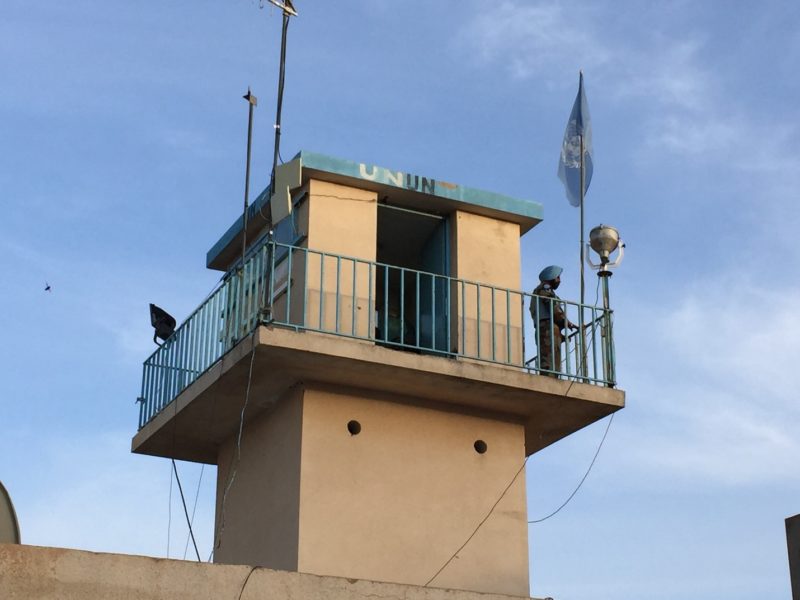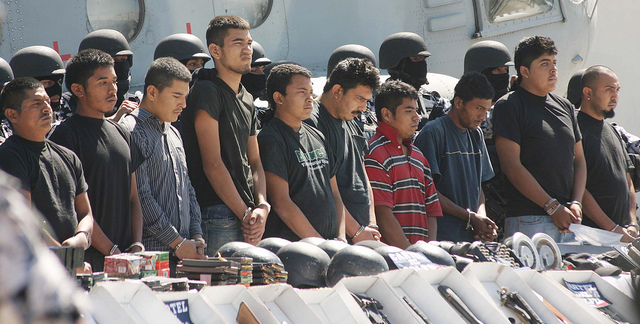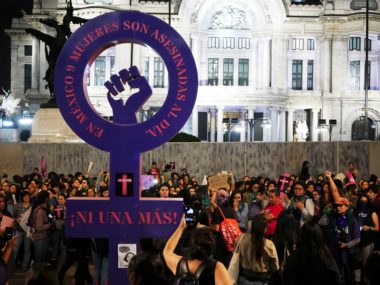
Boko Haram (BH) has had a banner couple of weeks, and the western press and social media participants have played an integral role. This type of thing exorcises me. I don’t like when people free ride (do not contribute to outcomes they value because they know their contribution to the outcome won’t make a difference), but I understand why, and accept it.[1] And I also understand why people unwittingly play into the hands of dissident groups who use terror tactics, rewarding the truly spectacular missions, but I have a harder time accepting it.[2]
The Critical Role of “Spreading the Word”
Terror is a tactical use of violence, by governments[3] or dissident groups, to “coerce the enemy rather than weaken him militarily” (Schelling 1966, p. 17). That is, it is a strategic use of violence targeting something that has little, if any, military value, but will “terrorize” an audience by appalling, concerning, and troubling the members of that audience (Stohl 1988). When used by dissident groups, such as BH, the strategic purpose of terror tactics tends to be some mix of three things:
- Incentivize the terrorized audience to pressure a government to change policy
- Demonstrate a government’s inability to provide security (and thereby, rule)[4]
- Visibility (of both the organization and the cause) and recruitment (see Barbara F. Walter’s recent post about BH and resources)
Terror as a tactic fails, therefore, if everyone “keeps a stiff upper lip,” as Londoners are said to have done during Hitler’s Blitz of World War II, and ignore it. Why? Because strategic objectives one and three are each undermined.
Paul Wilkinson‘s treatment of the mass media’s role in supporting objectives one and three remains useful (from Terrorism versus Democracy: the Liberal State Response).
In the process of attempting to spread terror among a wider target group, some channel or medium of transmitting information, however informal and localised, will inevitably be involved.
With a nod to Scarfe’s drawing (above), ask yourself this: what is BH’s “megaphone” to shout at the world what it “wants”?
That question highlights the issue. And while social media did not exist when Wilkinson was writing, he did recognize that the medium of transmission need not be formal. And social media is certainly not local. As such, those of us with accounts on Facebook, Instagram, Tumblr, Twitter, etc. are in “the game” in a way we were not in the past.
So, I want to know: as a member of the audience, whatch’ya gonna do? Will you emote, or will you behave strategically?
Moral Equivalence?
As an aspie the behavior of folks often strikes me as a bit puzzling, until I think about it and learn about or construct an account. It does not come naturally to me to decry the kidnapping of almost 300 girls. Why not? I don’t “immediately understand” why we privilege these girls over, say, the much, much larger number of victims of sex trafficking in Thailand (to pick a single example). Do we value Nigerian girls over Thai girls? Are the Nigerian girls any more “innocent”? Of course not. Indeed, you may find these rhetorical questions offensive.
What is different about the recently kidnapped Nigerian girls is that it is a dramatic, single event, much like the kidnapping and massacre of almost 200 school children in Russia back in 2004. It is literally — and this is important — a made for media consumption event. Human trafficking of girls to work in brothels serving sex tourists is a for profit enterprise. The perpetrators do not want media attention — quite the opposite.
But groups that commit acts of terror don’t just want the attention, they require it. And your #BringBackOurGirls hashtags, posts, shares, and retweets play an individually small, but collectively substantial, role in aiding the group’s cause. To wit, consider the title of my post: “BH is Winning” (see the recent post about successful terror tactics). Are people making demands on the government to change its policy? Is BH more visible today than it was prior to the kidnapping operation, and are their sympathizers more likely today to perceive them as a force to be reckoned with, and hence one to consider supporting? I think you will agree that the answer is: Yes.
What is to be Done?
OK, as I noted above, I am well aware that I am tilting at a windmill here. I might as well write a post about people littering, not paying their taxes, etc. And so I am indulging my own “need to emote” while at the same time asking others to stifle their need to do so. I’ll plead guilty to that hypocrite charge. But please allow me to close with a plea nonetheless.
If you would like to do something other than assuage your conscience by sharing your outrage on social media, then choose a human rights network to join and become active on a regular basis (e.g., Amnesty International, Human Rights Watch, or a group on this list). Or you could write a check (e.g., AI, HRW). But please stop inadvertently contributing to the [fill in here a dissident group that uses terror] cause.
A version of this post was first published on the author’s blog.
[1] Indeed, like everyone else, I frequently free ride myself. [2] One might divide people into two groups: journalists and everyone else, and argue that only the latter are unwitting. The argument would observe that journalists, who are professionals, are aware of what I discuss below, and thus are cynics who are aware that their “if it bleeds, it leads” coverage plays into the hands of the strategy of dissident groups that use terror tactics, yet write and run their stories because it raises their profile, enhancing their careers. [3] Government are by far the most prolific user of terror tactics (Rummel 1994). Michael Stohl’s various “myths” essays make the point best: 1988, 2001 [pdf], 2008 [gated]. Schelling (1966, p. 17) remains the most useful scholarly definition of terror as a tactic. [4] Note that terror directly challenges the government’s claim to a monopoly on legitimate use of coercion, which is Max Weber’s classic definition of a state.









14 comments
“Terror as a tactic fails, therefore, if everyone ‘keeps a stiff upper lip…'”
Might many Nigerians, especially in Borno State, claim that they *HAVE* been keeping a stiff upper lip – for years and years? I think it’s important to emphasize the fact that the #BringBackOurGirls movement originated among the Nigerian populace. And I don’t get the impression that many there are particularly averse to growing international attention on the problem, if only because such attention pressures what many perceive to be an apathetic, unaccountable, corrupt government to devote more resources to stabilizing the northeast. It’s difficult to understand the tradeoff between this and the possibility that Shekau et al. will exploit the attention to court new supporters and resources, near and far.
I wholeheartedly agree with your concluding paragraph.
Boko Haram won’t be in existence if it wasn’t for Saudi Money.They are the lethal new Bin Laden. Millions of American children are homeless and hungry .Where is their sign.???????
Mrs.O B A M A don’t look sad,be kind enough to hold a sign that says.STOP KILLING CHRISTIANS AND BURNING THEIR CHURCHES.Since 1/1/14 more than 100 thousand Christians been killed by terrorists thugs like Boko Haram,Christian children boys and girls been killed daily.There are Christians blood bathes in Egypt,Iraq,Syria,Nigeria,Kenya , east Asia. Are you watching TV.
If Twitter had existed in the first half of the sixteenth century, do you think people would have posted selfies in which they were holding up handmade signs that said, “STOP KILLING AZTECS AND BURNING THEIR HOMES.”? Just askin’.
Yes,same fact applies to the Armenian genocide,Turkey killed 1 1/2 million Armenian,Rwanda genocide in Africa,Kusofo Genocide ,Darfur /Sudan Genocide ,yes if there was internet and twitter ,probably these atrocities would not happened.Jalal
Reblogged this on dliwcanis.
A wrinkle – which by no means challenges the good intentions of those so taken by the assault on human dignity that this attack represents – but, location, location, location*?
You mentioned the issue of the trafficking of women for the sex industry and acknowledge that sadly this is but one example. I live in British Columbia, Canada where the ‘Highway of Tears’ (http://en.wikipedia.org/wiki/Highway_of_Tears_murders) has seen dozens of women missing; and where the national police (RCMP) have just concluded a study acknowledging the widespread disappearance of native women raising the number across Canada to in excess of one-thousand (http://www.cbc.ca/news/politics/rcmp-confirm-report-of-more-than-1-000-murdered-aboriginal-women-1.2630456).
Aside from simply writing this off to the globe being a misogyny zone – might such an attack of girls in Nigeria stand out to the Twitteratti as divorced from their own reality* … are many simply in denial of the drip, drip, drip of violence against women across the globe?
*with special attention to the general perception by many liberals that Islam = evil
Thanks for sharing this perspective. I am Canadian, where over a thousand Aboriginal women have gone missing or been murdered over the past 30 years. This is a situation where a campaign of awareness raising is truly needed, because the perpetrators do not want attention.
Also, great last paragraph!
This seems to be more more a generic statement of a position than actually relevant to this particular case. It would be nice, for instance, to actually see some evidence that the media attention has in any way aided BHs cause. Also can we leave out the personal stuff. The general absence of that sort of thing has been a positive part of this blog.